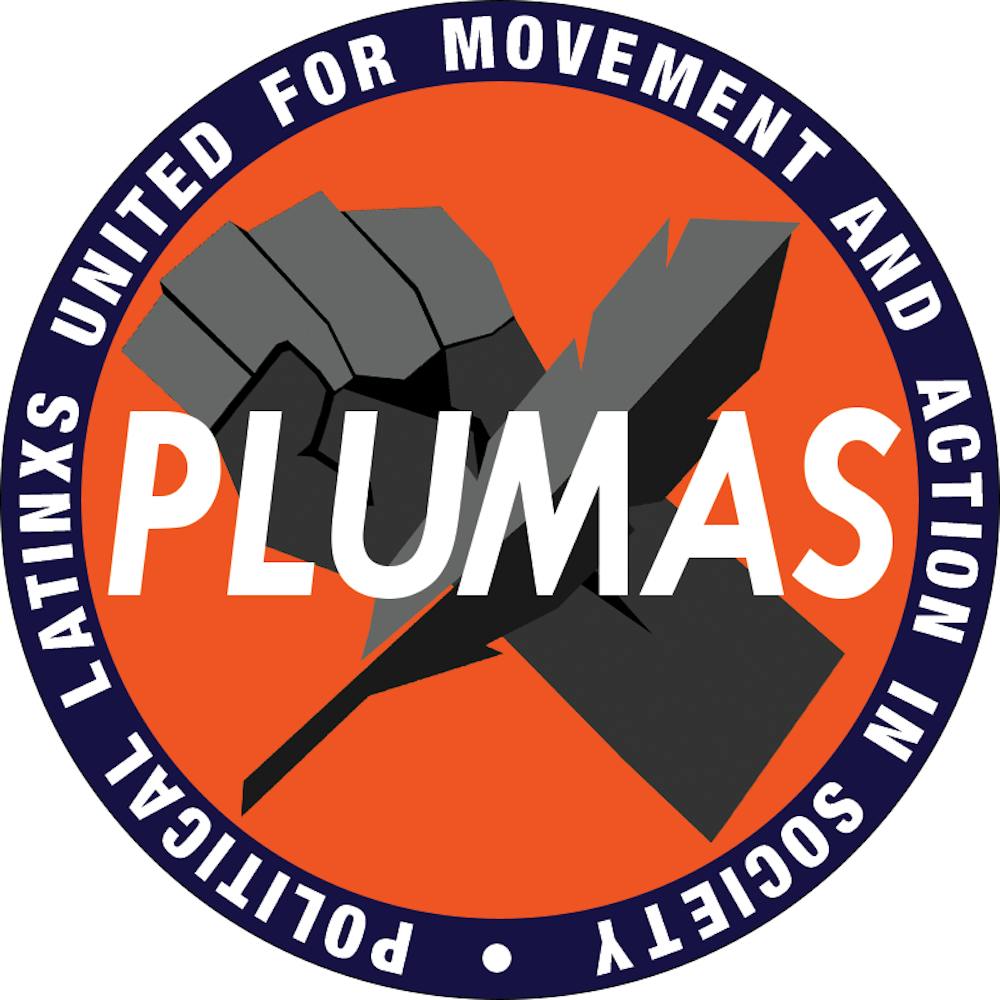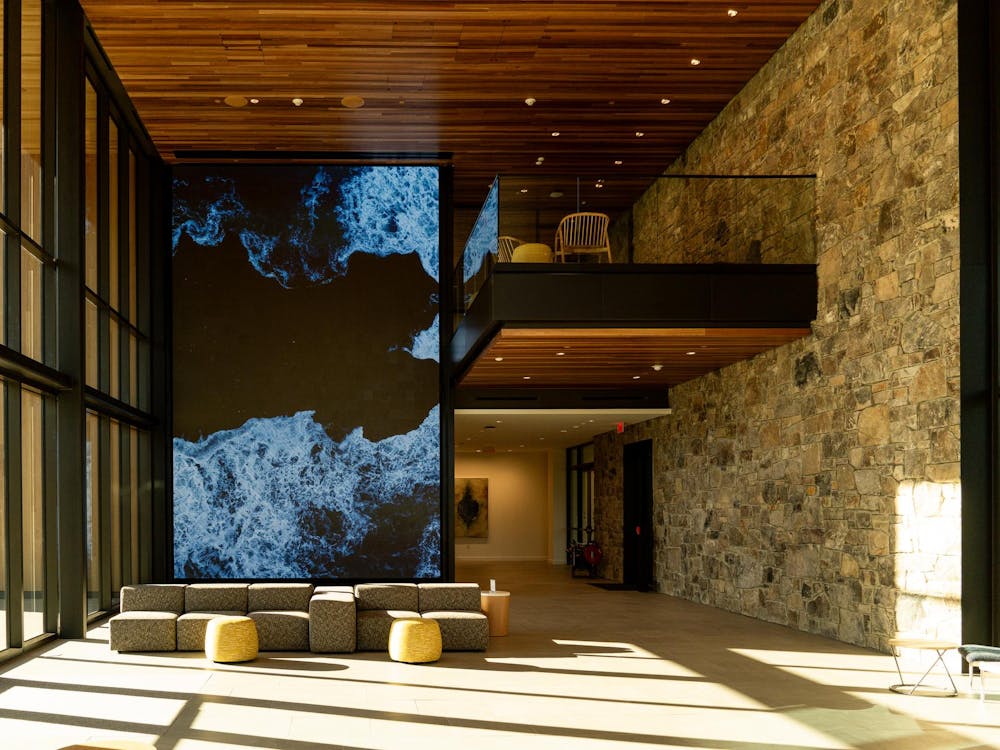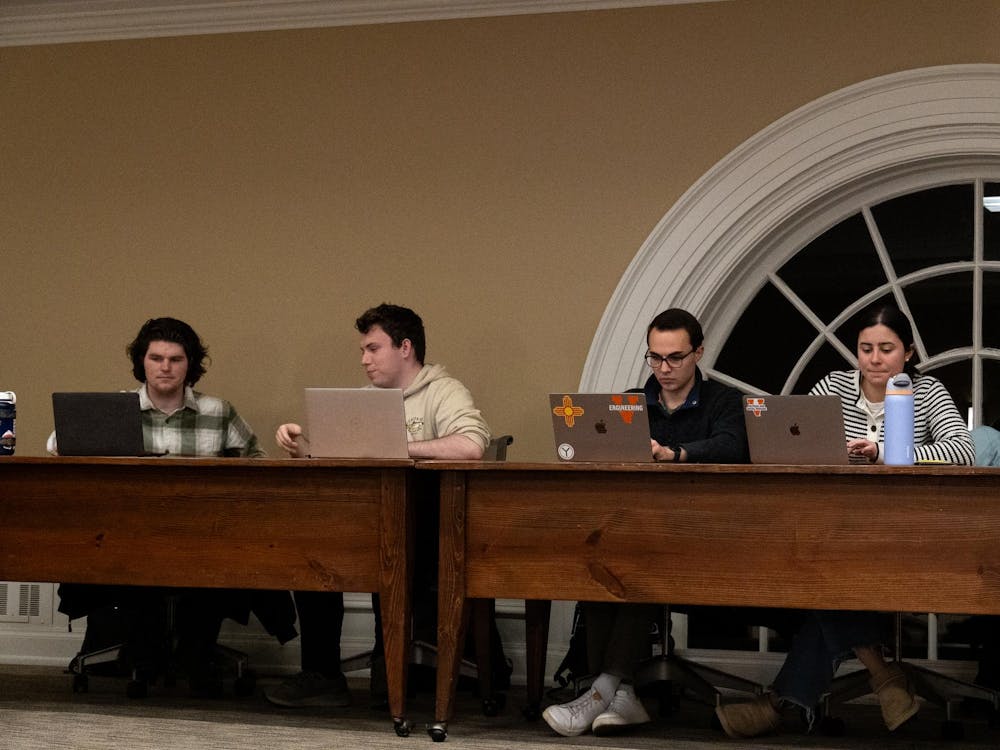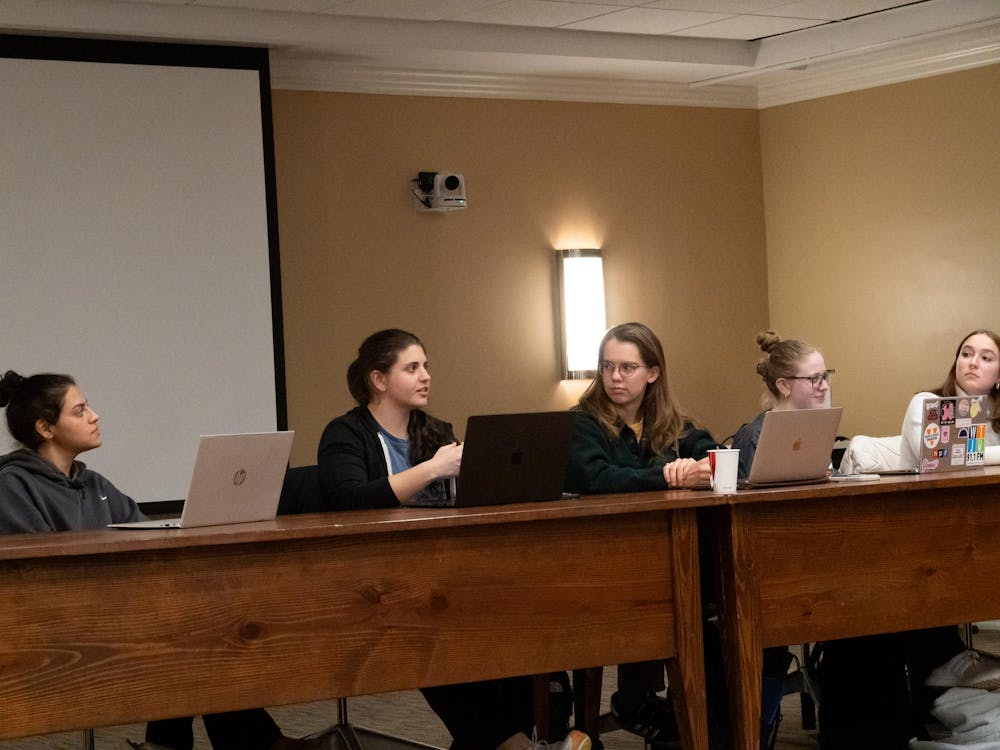Student Council approved its 2017-18 budget as well as a new contracted independent organization during its Tuesday legislative session. The budget was passed unanimously after representatives approved a final amendment reducing funding for the Student Council fall banquet from $2,000 to $1,500.
The Council first unanimously approved Political Latinxs United for Movement and Action in Society — a political action organization advocating for Latinx concerns — as a new CIO after hearing from two representatives from the organization.
“PLUMAS seeks to create civic engagement and awareness of social and political issues through education, advocacy, and direct action,” reads the organization’s mission statement.
According to the mission statement, the organization welcomes any individual without discrimination — members do not have to come from Latinx ancestry.
Third-year College student Nino Villalobos, representing PLUMAS, spoke first. She said that PLUMAS was separate from the Latinx Student Alliance in that they organized action and advocacy rather than events.
“We want people to know about the Latinx community and the challenges that we face today,” Villalobos said. “We want the public to know why we are angry, why we want change.”
Fourth-year College student Eddie Castillo also spoke in favor of approving PLUMAS. He noted PLUMAS is a national organization with chapters around the country.
Castillo also noted the timely manner of the establishment of PLUMAS at the University, as the American Studies program recently created a Latinx Studies minor.
Ty Zirkle, a third-year College student and Student Council vice president for organizations, said he fully supported granting CIO status to PLUMAS after it underwent a thorough vetting from the Council’s CIO consultants.
Since this was the first CIO bill of the year, Zirkle reiterated Student Council’s criteria for admitting a CIO. The criteria include requirements for student membership, positive contributions, leadership, nonduplication, sustainability and an up-to-date constitution containing nondiscriminatory language.
“I have absolutely zero concerns about approving PLUMAS,” Zirkle said.
The council also unanimously voted to appoint fourth-year College student Nicholas Pradhan as co-chair of the Diversity Engagement committee. Sarah Kenny, a fourth-year College student and Student Council president, sponsored the bill and spoke in favor of Pradhan’s appointment.
Council representatives then continued debate on a newly-updated 2017-18 annual budget. This came after last week’s General Body meeting, in which over an hour of debate resulted in the decision to table the final budget decision until the meeting this week.
Michael Horth, a third-year Commerce student and Student Council’s chief financial officer, introduced the budget with the two updates decided upon at the last meeting.
During the period open for representatives’ comments, motions and questions, debate ensued about the allocation of $2,000 for the Student Council fall banquet. Ellie Brasacchio, a second-year College student and chair of the Internal Affairs Committee, suggested that this $2,000 be cut to $600.
Alex Cintron, a third-year College student and vice president for administration, responded that $600 would not be nearly enough to cover costs for the dinner.
The reasons he cited were that Newcomb Ballroom only contracts with certain caterers who charge per-person rates, and that the $2,000 was necessary to cover all of the Council’s leadership, a large number of General Body members and invited administrators and faculty. Horth later said that the caterers will charge about $16 per person.
Cintron also suggested that new amendments should’ve been introduced in last week’s meeting, which was more focused on debate and amendments.
“I don’t necessarily think it’s appropriate or in good spirit to bring up this issue at the meeting when we’re supposed to be voting on the budget,” Cintron said.
Horth said that $2,000 was simply the upper limit the Council could spend on the banquet, but that the Council could use any extra funds for other initiatives
Cintron said that this money came from leadership fundraising at the Activities Fair, and not from the Student Activities Fund. He also addressed the importance of having a significant number of University leadership figures and administrators at the banquet.
“We felt as if it needed to be something that was useful for leadership to have those connections with administrators,” Cintron said. “That’s the primary purpose, along with essentially giving people who are new to the organization the opportunity to make those very valuable connections that people in Academic Affairs, in Legislative Affairs regularly interact with currently.”
David Birkenthal, a fourth-year College student and chair of the Representative Body, suggested lowering the $2,000 and digging into discretionary funding if necessary to cover costs for the banquet. Cintron objected that using discretionary funds could be harmful to multicultural or minority organizations that are frequent recipients of these funds in cases of tragedies.
Brasacchio amended her motion to a $1,500 allocation for the banquet, and this motion received Birkenthal’s support.
Third-year College student and representative Ian Ware abstained from the vote, and spoke briefly to explain his reasoning to the rest of the representatives.
“One of the reasons I joined Student Council was to fight against this elitist culture that we have at this University where resources are only given to student leaders, student leaders who have the time and money to put into their positions,” Ware said. “Student Council is one of those organizations … And if we are creating an event where we are spending $2,000 to let that class of students network with administrators … I think that’s just propagating this elitist culture that we have at this University.”
The motion was finally put to a vote, resulting in the bill’s passage with 10 votes in favor, four against and seven abstentions. After the vote, Cintron said the change to $1,500 was reasonable.
Following the amendment’s approval, the budget was put to a final vote, and the amended budget passed unanimously.





